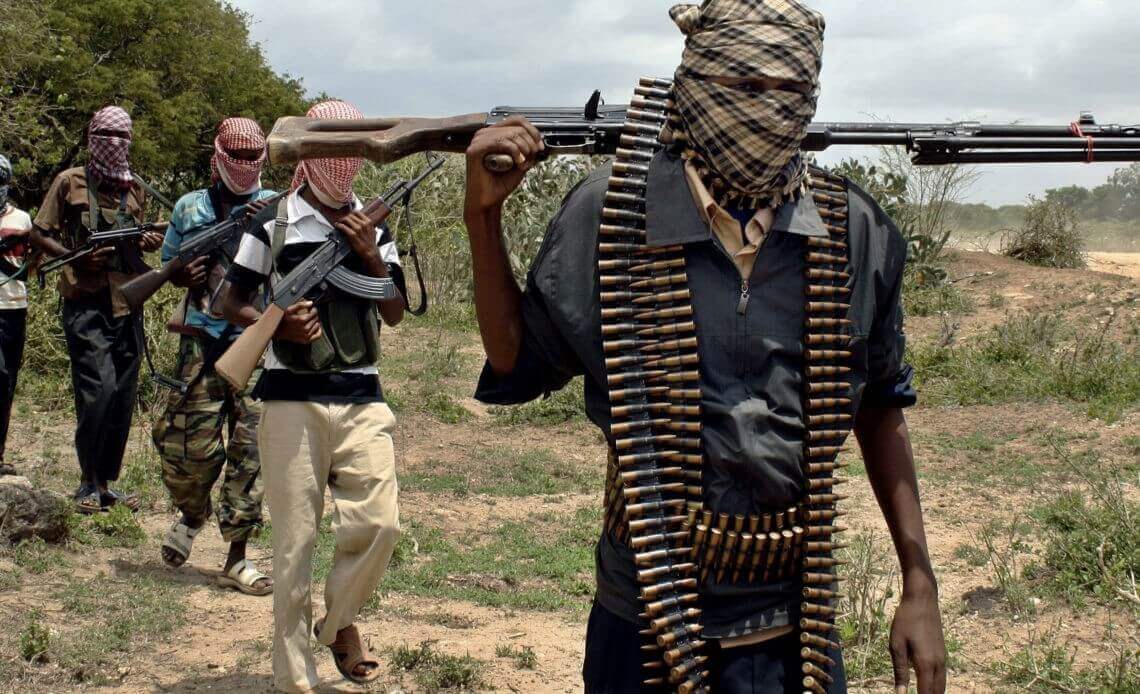Violence is surging in Mozambique’s northern-most and coastal province of Cabo Delgado, prompting intervention by both the United States (US) and France. The oil-rich area has become seized by Islamic extremism and is affecting the livelihoods and security of over 700,000 people.
In recent times, the country has become overrun by the Islamic State and local militants—many of whom cross over from Kenya and Tanzania —who are part of a local terror group called either Ahlu Sunna Wal Jama or Ansar al-Sunna, meaning “supporters of tradition”. Since October 2017, more than 1,100 civilians have died in terror-related incidents, and these incidents rose by 300% during the first four months of 2020 compared to the same period in 2019.
As a result of this conflict, around 250,000 people have been displaced, churches have been razed, and in June, militants beheaded 15 people over the course of just one week. Those who stand up are killed as well. Earlier this year, 52 youth were killed for refusing to join the Islamic terrorist outfits. At the same time, many young girls are being kidnapped and forced into sexual slavery.
Several terror groups compete with each other for power and innocent civilians are caught in the crossfire. At the same time, these outfits also target security forces, destroy public infrastructure, and steal weapons from Mozambique troops.
In a country where over 56% of the population is Christian and just 18% is Muslim, terror groups haves capitalized on anger and frustration from decades of disenfranchisement, marginalization, and unemployment among the minority Muslim community. For instance, following the discovery of oil and gas deposits in Cabo Delgado, the government licensed “the entire district of Montepuez to mining companies, leaving communities without land to grow their food”.
Simultaneously, many have been displaced from resource-rich area to make way for mining and exploration, which has deprived the local population of “water, farmland, wild food, medicinal plants, rubies for income and construction material”. Consequently, terror groups have been able to recruit several young soldiers to their cause, some as young as 14.
What initially began as an anti-government agenda in 2015, soon became an armed struggle by 2017. In response, the heavily under-resourced and under-staffed Mozambican military has sought the support of private military contractors such as Russia’s Wagner Group, which is charged with destabilizing actions in Libya, and the South Africa-based security company Dyck Advisory Group. However, this escalation has only hastened the resolve of the insurgency. Neighboring countries—Malawi, South Africa, Eswatini, Zambia, Zimbabwe and Tanzania, which are all members of the Southern African Development Community (SADC)—have thus far failed to coordinate a proper counter-insurgency plan.
The US and France have responded to this crisis by increasing their patrolling along the coast of Cabo Delgado, arguing that by cutting off drug traffickers, they can reduce terrorist activity as the proceeds from drug trade fuels militancy.
Deputy Assistant Secretary of State for the Bureau of International Narcotics and Law Enforcement Heather Merritt said, “There’s a lot of overlap between the drug traffickers and extremists and the types of conditions that enable them to thrive, and sadly, those conditions are present in Mozambique. So in Mozambique [the State Department is] supporting some of the Mozambican government’s counter-narcotics efforts. We’re also working … to help them disrupt some of the transnational organized crime at sea through more effective patrolling.”
Meanwhile, the French Armed Forces of the Southern Zone of the Indian Ocean (FAZSOI) is engaging in military maritime cooperation with their Mozambican counterparts.
While the indirect support of the US and France are no doubt welcome, there is a greater need for regional actors in the African continent to support counter-insurgency efforts on the ground, either through diplomacy or through troop presence.
Mozambique Crisis Spiralling Out of Control, Prompting American and French Intervention
The oil-rich country has become seized by Islamic extremism.
July 30, 2020

SOURCE: PLATAFORMA
